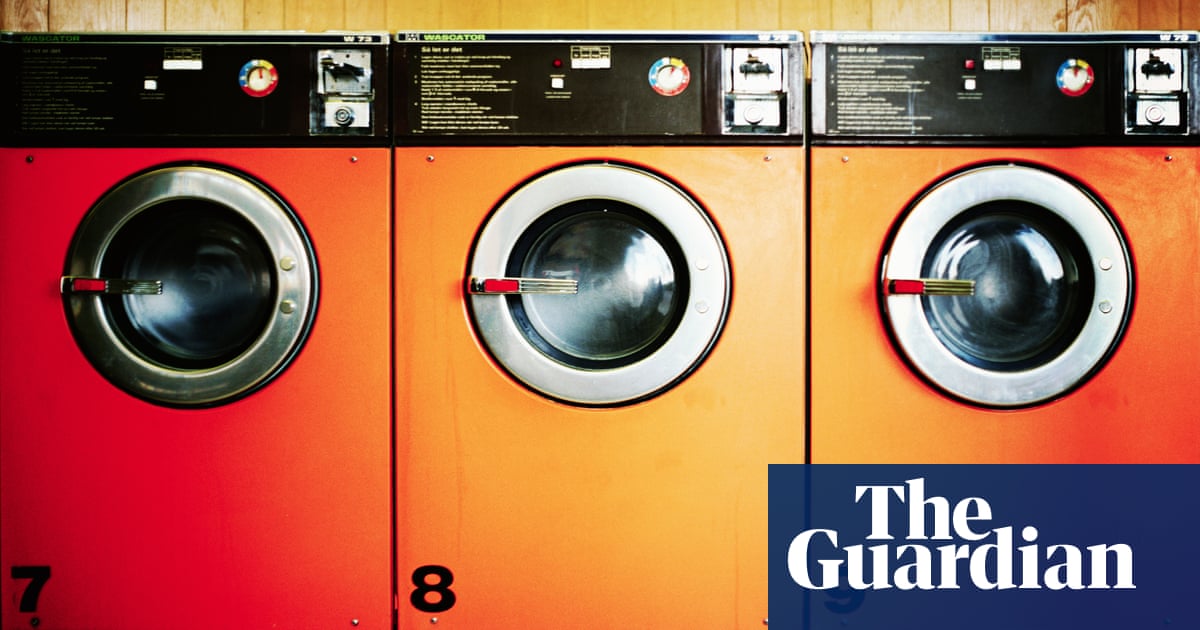
nce upon a time, at the mouth of the river Don on the Scottish coast, there was a town called Aberdon. Somewhere along the way, without any fanfare, its final vowel changed. Today we call it Aberdeen.
Once upon last week, there was a company called Standard Life Aberdeen. With a flourish, it changed its name to Abrdn. The company spokespeople tell us it’s pronounced “Aberdeen”. The internet pronounced it a disaster.
Now, I am as cynical as the next Guardian reader about corporate rebrandings. They feel like something companies do in lieu of actual business and, at worst, seem like cover-ups. But I’m also cynical about the rush to condemn. Many industry commentators see wisdom in the motive for change, which follows the company’s sale of the Standard Life brand and brings five subsidiaries under one name. But the complimentary notes were drowned out by waves of “Meaningless!”, “Illiterate!” and, inevitably, “Rdcls!”
As the naming consultant Nancy Friedman has noted, “It’s a phenomenon as curious as it is predictable: introduce a new brand name, brace for criticism – even outrage – from all corners.” (Friedman herself has described Abrdn as “lightweight”.) The Financial Times, among others, has diagnosed Abrdn as “at risk of joining the category of brand changes that do not stick”, such as the short-lived rebrands of the Post Office (Consignia) and PwC (Monday).
More often than not, name changes are benign. The disproportionate public reaction is rooted in a petty bias against superficial change. Media outlets fuel the fire for a guaranteed source of clicks and comments. If the company can hold its nerve, all will be forgiven. “Within three months, six months, or a year, [a new] name will be shrugged at – or even esteemed,” Friedman observes.
The excuses found for disparaging Abrdn make evident that reactions to new words are led by the gut and not the head, illustrating the routine shallowness with which language is considered in Anglophone culture. Looking more deeply at Abrdn raises interesting comparisons and staves off any worry that the change signals linguistic, corporate or cultural dissolution.
Dropping letters makes Abrdn look like an old person trying to “get down with the kids” a bit too late – or at least that’s what self-consciously middle-aged commenters seem to worry about, citing pop singer HRVY. Un-spelling a single barely pronounced vowel – as in Tumblr, Scribd and Toggl – is a bit five-years-ago, but Abrdn has done more than that. It fits into a long tradition of reduced-vowel spelling – from Irn-Bru (1946) to any number of Xpresses.
Others have pointed out that it might be natural to read it as “a burden”. The capital A should attract emphasis, so that even without knowing which vowels to insert, we’d expect a stress pattern more like Ab-r-dn than a-BR-dn. The greater risk is that BR will be perceived as a consonant cluster, making the middle “bred” rather than “berd”. That might flummox those unfamiliar with Aberdeen, but not for long. Just as we learned to recognise tmrw as “tomorrow” and rlly as “really”, those who deal with Abrdn will know it when they see it.
Adept readers do very little sounding-out of the printed word. Once a spelling is known, we recognise it as a unit, not a series of sounds. And good thing, too, because English spelling is spectacularly unhelpful. Those who tell us that Abrdn is “vowelless” or “unpronounceable” are suffering under the impediment of English literacy, conflating the language and its printed form – as if vowels are letters rather than sounds. Whole writing systems, such as Hebrew and Arabic, skip vowels as a matter of course. (Linguists call them “abjads”, in contrast with vowelly alphabets.) English readers are just as able to see the word through the consonants, as proved by the many cmmntrs wrtng lk ths whn dscssng Abrdn. If we know to pronounce Ltd as “limited” and FTSE as “footsie”, we can easily adjust to seeing Abrdn and pronouncing it “Aberdeen”.
We’re left with the claim that Abrdn is “meaningless”, as if names need dictionary-style meanings. Names don’t mean; they simply denote. Ask my family what “Lynne” means and they won’t be able to tell you. But they will be able to point to me. “Aberdeen” already refers to a city, a university and a football team. The Abrdn solution conveys the company’s corporate and geographical heritage while ensuring it comes first in any web search for the name. And it does just what much of the financial sector has been doing for decades now: abbreviating the old brand to mark the distance from their 19th-century locales and business models: NatWest (National Westminster) or LV (Liverpool Victoria). The fact that Abrdn is an anagram of “brand” tastes like icing on a clever cake.
Why do name changes cause inflammation? Perhaps it’s just more pleasant to gripe about things that have no real consequence than to consider the things that really are bad – in the financial sector among other places. That is a shame. Name-watching is far more interesting than name-blaming.
Lynne Murphy is professor of linguistics at the University of Sussex and author of The Prodigal Tongue: the Love–Hate Relationship between British and American English












